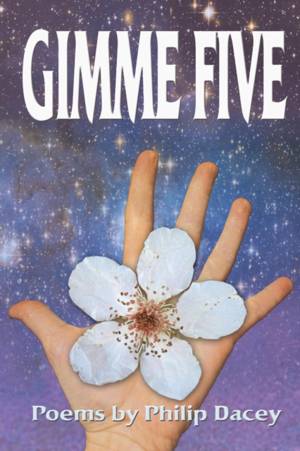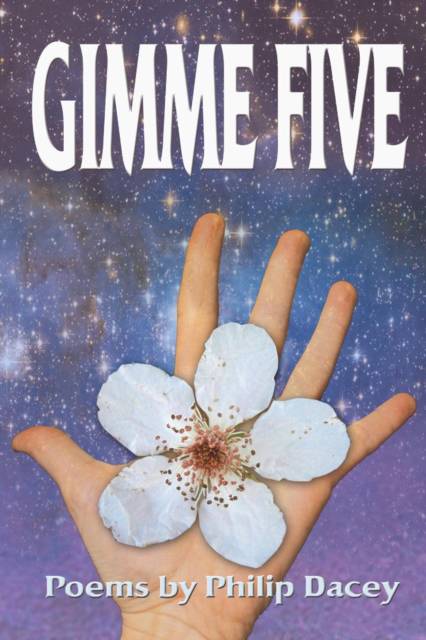
Bedankt voor het vertrouwen het afgelopen jaar! Om jou te bedanken bieden we GRATIS verzending (in België) aan op alles gedurende de hele maand januari.
- Afhalen na 1 uur in een winkel met voorraad
- Gratis thuislevering in België vanaf € 30
- Ruim aanbod met 7 miljoen producten
Bedankt voor het vertrouwen het afgelopen jaar! Om jou te bedanken bieden we GRATIS verzending (in België) aan op alles gedurende de hele maand januari.
- Afhalen na 1 uur in een winkel met voorraad
- Gratis thuislevering in België vanaf € 30
- Ruim aanbod met 7 miljoen producten
Zoeken
Omschrijving
Philip Dacey is the author of eleven previous books of poetry, most recently Mosquito Operas: New and Selected Short Poems (Rain Mountain Press, 2010) and Vertebrae Rosaries: 50 Sonnets (Red Dragonfly Press, 2009). The winner of three Pushcart Prizes, he has written entire collections about Gerard Manley Hopkins, Thomas Eakins, and New York City. His other awards include a Discovery Award from the New York YM-YWHA's Poetry Center and various fellowships (a Fulbright to Yugoslavia, a Woodrow Wilson to Stanford, and two in creative writing from the National Endowment for the Arts). His work has appeared in such leading periodicals as The Nation, Hudson Review, Poetry, The Southern Review, The Paris Review, Partisan Review, The New York Times, American Review, The American Poetry Review, and The Georgia Review. With David Jauss, he co-edited Strong Measures: Contemporary American Poetry in Traditional Forms (Harper & Row, 1986). After an eight-year post-retirement adventure as a resident of Manhattan's Upper West Side, he returned in 2012 to Minnesota, where he taught for 35 years at Southwest Minnesota State University, in Marshall, to live in Minneapolis in the Lakes District with his partner, Alixa Doom. Philip Dacey is the author of eleven previous books of poetry, most recently Mosquito Operas: New and Selected Short Poems (Rain Mountain Press, 2010) and Vertebrae Rosaries: 50 Sonnets (Red Dragonfly Press, 2009). The winner of three Pushcart Prizes, he has written entire collections about Gerard Manley Hopkins, Thomas Eakins, and New York City. His other awards include a Discovery Award from the New York YM-YWHA's Poetry Center and various fellowships (a Fulbright to Yugoslavia, a Woodrow Wilson to Stanford, and two in creative writing from the National Endowment for the Arts). Praise for Previous Books by Philip Dacey: Lovers of poetry, of fine turns of language, of amazing knots tied and untied, will appreciate Dacey's poems. Their strength is in the voice, the casual, comfortable speaker, whether Whitman, Hopkins, Gauguin, or the men and women of middle America. The authenticity, the humor, the intelligence-in verse, free or chained-you can't ask for more. -Louis McKee When he is serious, Philip Dacey isn't daunting, and when he is humorous he isn't silly, rather bringing to his work a mixture of learning and a deft touch with language. These poems are, in a word, suave. -David Chorlton Philip Dacey continues to do what he's done for years: keep kicking what passes for contemporary American poetry in the ass by way of reminding it of its wondrous possibilities, if, as my grandmother used to say, we would care to be possessed of all our faculties when we write it. -Bruce Cutler
Specificaties
Betrokkenen
- Auteur(s):
- Uitgeverij:
Inhoud
- Aantal bladzijden:
- 74
- Taal:
- Engels
Eigenschappen
- Productcode (EAN):
- 9781421886619
- Verschijningsdatum:
- 8/02/2013
- Uitvoering:
- Paperback
- Formaat:
- Trade paperback (VS)
- Afmetingen:
- 152 mm x 229 mm
- Gewicht:
- 122 g

Alleen bij Standaard Boekhandel
+ 43 punten op je klantenkaart van Standaard Boekhandel
Beoordelingen
We publiceren alleen reviews die voldoen aan de voorwaarden voor reviews. Bekijk onze voorwaarden voor reviews.









